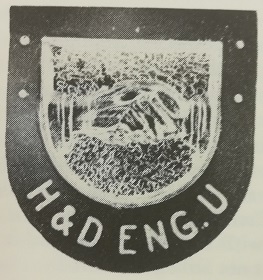
Manufacturing, Science and Finance was a trade union in Britain. Over eighty members of Parliament were members.
The National Amalgamated Union of Enginemen, Firemen, Mechanics, Motormen and Electrical Workers was a trade union in the United Kingdom. It represented stationary engine drivers and cranemen in a wide variety of industries, as well as less skilled workers in the electrical industry and miscellaneous workers.
The National Glass Bottle Makers' Society was a trade union representing workers involved in the manufacture of glass bottles in the United Kingdom.
The Process and General Workers' Union was a British trade union representing workers involved in mining and processing salt, and related industries, mostly in Cheshire.
The Engineering and Fastener Trade Union was a trade union based in the West Midlands of England.

The Confederation of Shipbuilding and Engineering Unions (CSEU), often known as the Confed is a trade union confederation in the United Kingdom.
The United Patternmakers Association (UPA) was a trade union in the United Kingdom.
The National Union of Gold, Silver and Allied Trades (NUGSAT) was a trade union in Britain and Ireland. It represented workers in precious metals, jewellers, diamond polishers, electroplaters, watch and clock repairers and dental technicians.
The Lancashire and Cheshire Miners' Federation (LCMF) was a trade union that operated on the Lancashire Coalfield in North West England from 1881 until it became the Lancashire area of the National Union of Mineworkers in 1945.

The Friendly Society of Iron Founders of England, Ireland and Wales (FSIF) was an early trade union representing foundry workers in the United Kingdom.
The Amalgamated Society of Textile Workers and Kindred Trades (ASTWKT) was a trade union representing textile workers, principally silk manufacturing, in the United Kingdom.
The Associated Metalworkers' Union was a trade union in the United Kingdom which existed between 1863 and 1999. It represented semi-skilled foundry workers known as iron dressers or fettlers, who were responsible for removing moulding sand and excess metal from castings.
The National Union of Domestic Appliances and General Operatives (NUDAGO) was a trade union representing metal workers in the United Kingdom, principally in the town of Rotherham. It primarily represented workers employed in manufacturing whitegoods, but also had some membership in foundries and light engineering.
The Amalgamated Textile Warehousemen's Association was a trade union representing workers in the textile industry in the United Kingdom, principally in Lancashire.
The Miners' National Union (MNU) was a trade union which represented miners in Great Britain.
The Associated Blacksmiths, Forge and Smithy Workers' Society (ABFSWS) was a trade union representing metalworkers in the United Kingdom and Ireland.

The Heating and Domestic Engineers' Union (H&DEU) was a trade union representing a wide range of workers, particularly those involved with domestic pipework, in the United Kingdom.

The Birmingham and Midland Sheet Metal Workers' Society (BMSMWS) was a trade union representing sheet metal workers in the English Midlands.
The Amalgamated Union of Machine and General Workers was a general union representing workers in and around Lancashire in England.
The Amalgamated Society of Coopers was a trade union representing coopers in the United Kingdom and Ireland.





